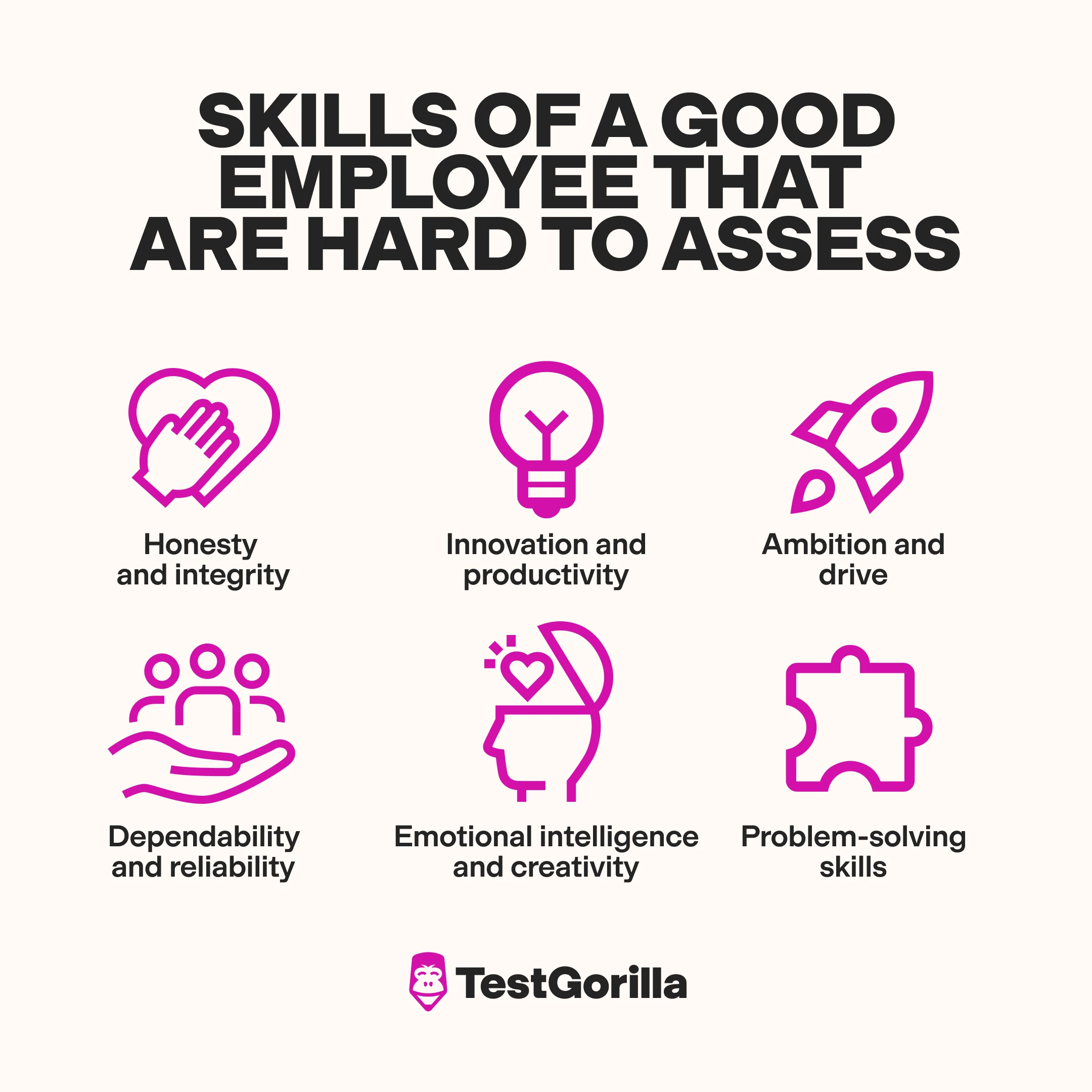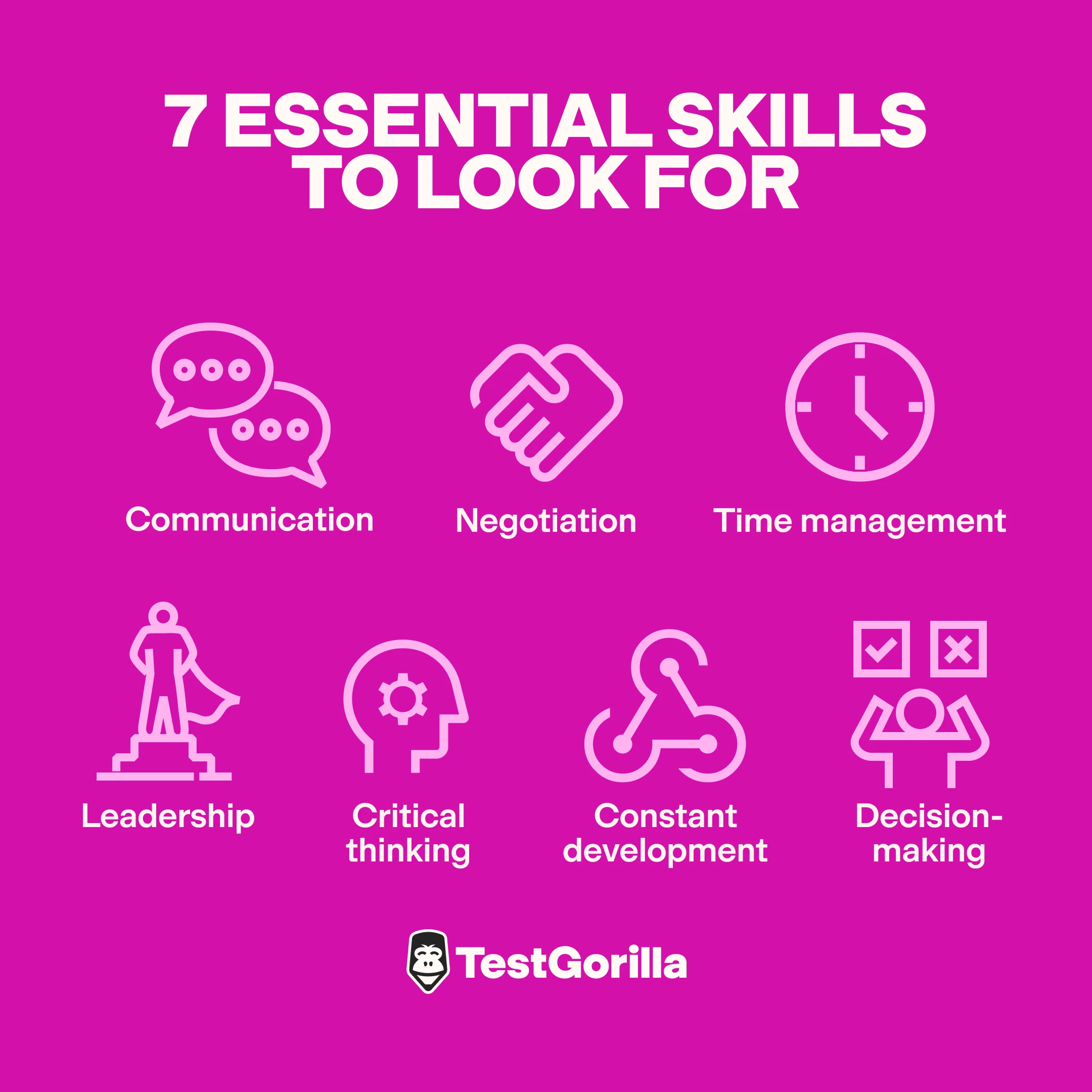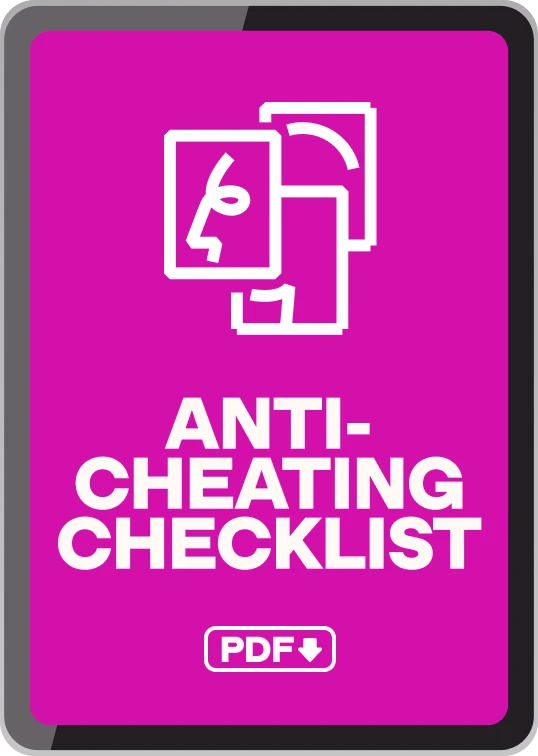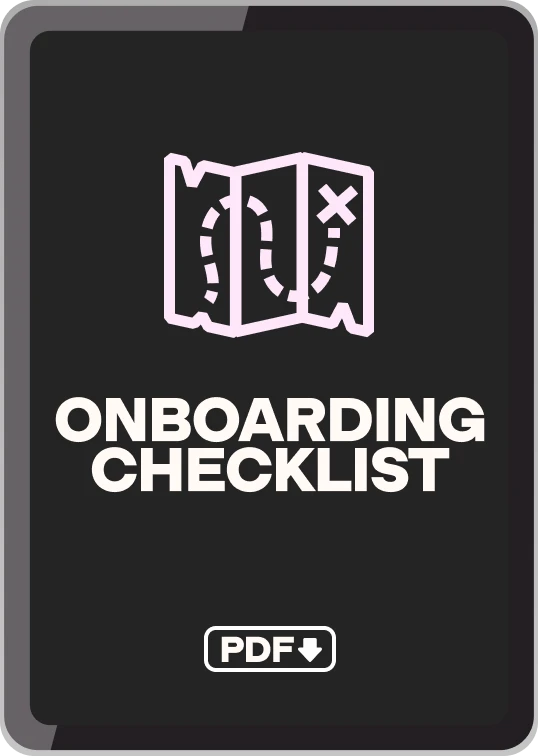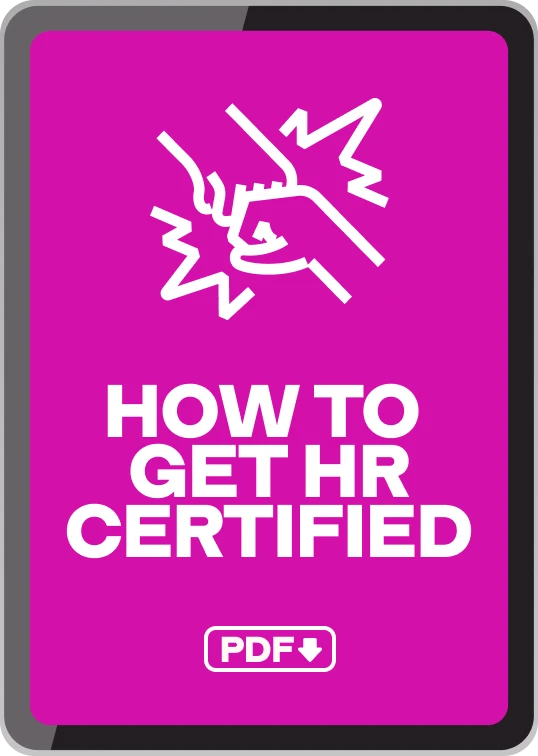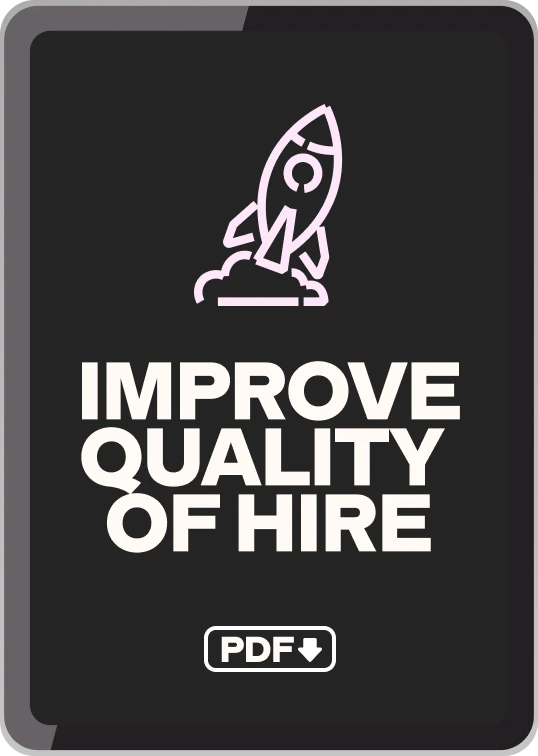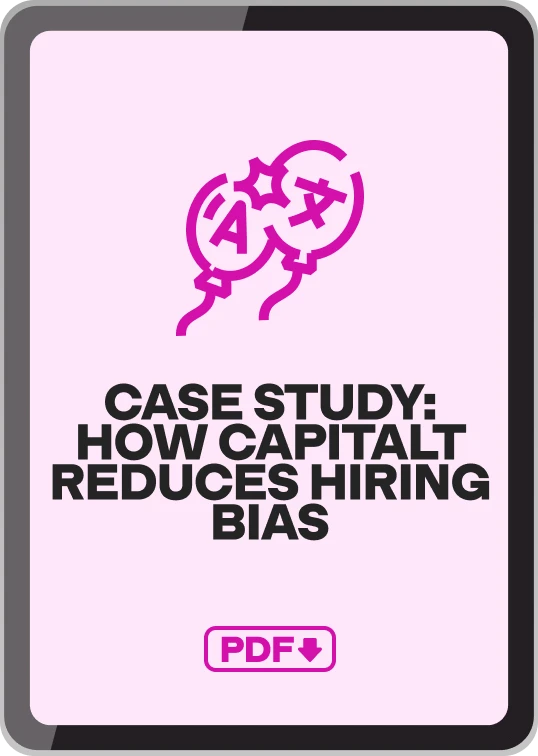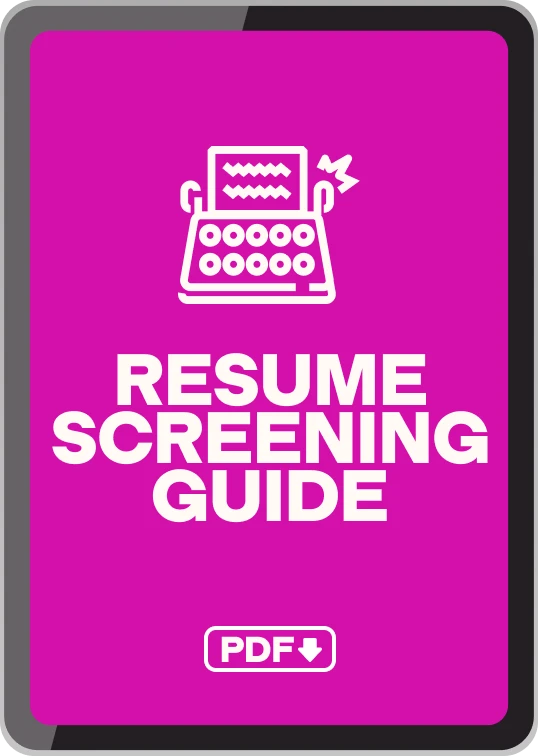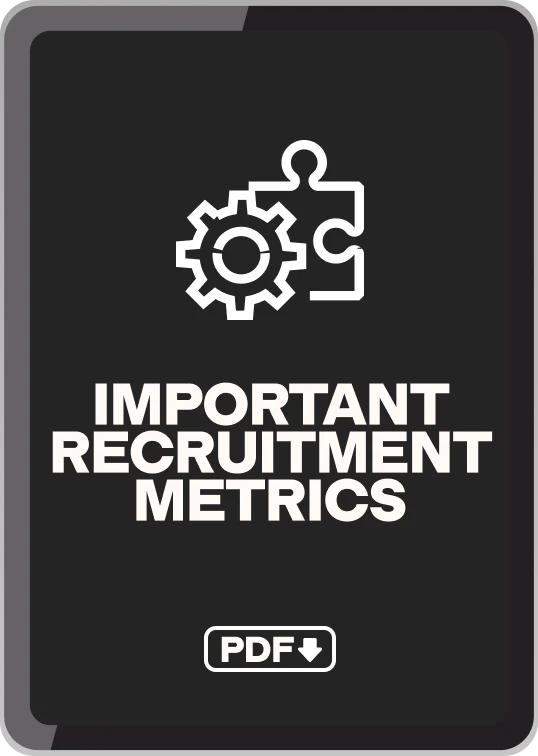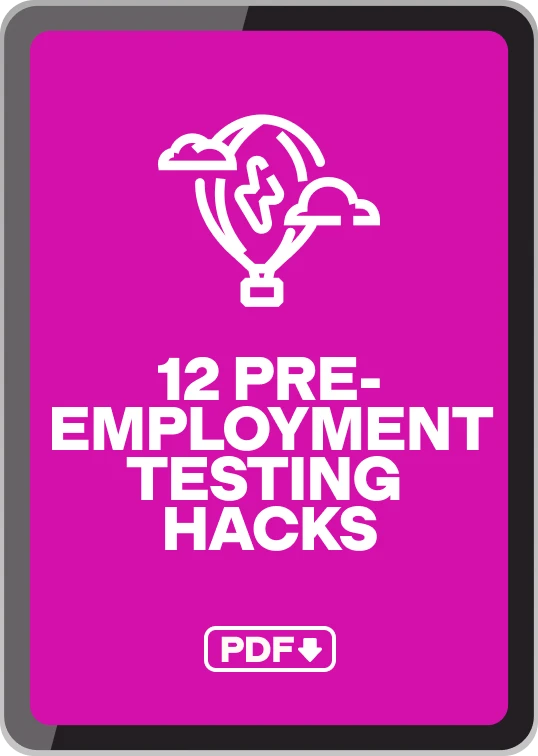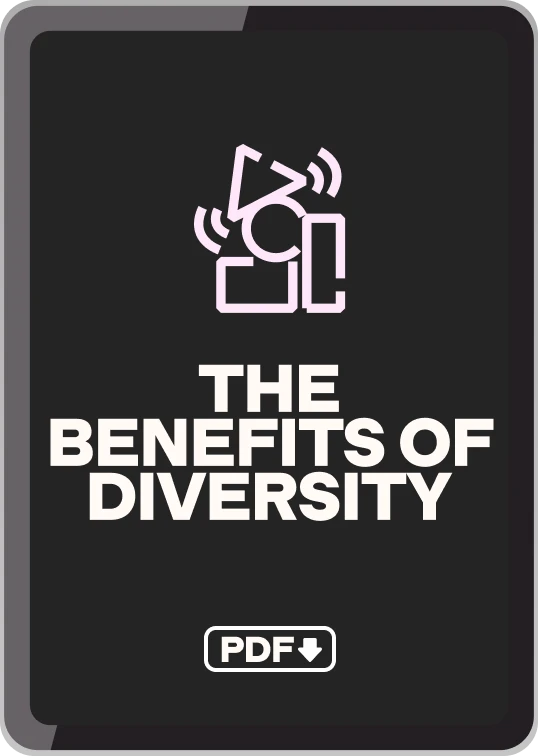7 key skills that every employee in the workplace should have
Regardless of the position you’re hiring for, there are some universal, sought-after skills you shouldn’t overlook during the recruitment process. Whether you’re hiring a business leader or an employee, it’s important for you to know about these fundamental abilities.
But which skills should you prioritize?
Learn the seven essential employee skills that every employee should have and how to use pre-employment skills testing to assess them in this article.
Table of contents
What are some skills of a good employee that are hard to assess?
There are plenty of qualities all employees should have that you may consider challenging to assess. You might face problems reviewing them, even if you have an exceptional recruitment process and top evaluation methods. Some examples of these qualities include:
Honesty and integrity
Innovation and productivity
Ambition and drive
Dependability and reliability
Emotional intelligence and creativity
Problem-solving skills
Some excellent news is that you can review many of these skills at the same time with the right skills-assessment platform. For example, you can use a reliable assessment platform that offers a motivation skills test to assess your applicants’ productivity, ambition, and drive.
If you wish to assess your applicants’ creativity and problem-solving abilities, consider using our Problem Solving test and Critical Thinking test.
What are the 7 essential skills to look for?
As an HR professional, there are some indispensable employee skills you should look for during recruitment. These abilities can make a critical difference to your team and company’s performance, so pay close attention to applicants who have the following essential employability skills.
1. Communication
Communication is vital to the success of every role. It doesn’t matter if you’re hiring a content writer or a software developer; your new hire will need to communicate with clients, teams, stakeholders, and leadership.
Studies show that communication skills lead to success in the workplace, so ensuring your candidates have mastered active listening and written and verbal communication is vital.
2. Negotiation
You may think that negotiation only applies to marketing or sales, but did you know that this skill is fundamental for all roles? Negotiation is essential for delegating and accepting new tasks, driving change by influencing others, and reaching agreements with other teams.
Check whether your employees have negotiation skills with our negotiation skills test.
3. Time management
Plenty of organizations are looking for ways to level up their time-management skills – and for a good reason. Time management can improve the efficiency of workflows and enable employees to handle tasks quickly and meet deadlines.
To maintain a steady flow of work and regular output, make sure your applicants and employees have top time-management skills by using our Time Management test.
4. Leadership
Leadership is a key skill for more than just leadership roles, which is why it’s crucial for many employees in the workplace.
Some leadership subskills, such as motivating and engaging team members, significantly impact employee absenteeism. Gallup found that business units and teams in the top quartile in terms of employee engagement levels had 81% lower absenteeism than those in the bottom quartile.
With leadership subskills like engaging colleagues, employees can contribute to a productive workforce and reduce absenteeism. So make sure to review these employee skills with a Leadership & People Management test.
4. Critical thinking
Your applicants need critical-thinking skills to make complex decisions and solve difficult challenges. These skills are as important for first-line workers as they are for leadership, so check whether your candidates’ critical-thinking skills are at the level you require with our Critical Thinking test.
5. Constant development
Do your employees seek to continuously develop their skills? This trait is another one of the essential employee skills you should try to measure. There are two reliable ways to do this:
Conduct an interview and ask for examples of your applicants’ drive and commitment to constant development. For instance, if you’re hiring a software developer, get them to answer questions about their side projects.
Ask for work samples to assess your applicants’ progress over time. For example, if you’re hiring a content writer, ask for their most recent work and compare it with a previous article they’ve written.
6. Decision-making
Decision-making is a fundamental employee skill that is beneficial in any role. Whether you’re hiring a sales representative or an English teacher, your new employee must make important decisions every day. Review your applicants’ decision-making skills in an interview.
What are 3 vital characteristics an employee should have and why?
Though they are distinct from the skills discussed above, characteristics like passion, punctuality, and a positive mindset also have a major impact on a new hire’s performance.
Employees who are passionate about their jobs are more likely to be curious about learning new skills and seek constant development. A positive mindset can help them deal with challenges and respond productively to negative feedback. Finally, punctuality enables workers to manage their time efficiently and finish projects more quickly.
Which skills do employees need to succeed in the modern-day workplace?
Employees also need a few other key skills to succeed in today’s rapidly evolving workplace. Some of the crucial skills you should evaluate during the recruitment process include the following:
Teamwork and collaboration
Organizational skills
Flexibility and curiosity
Confidence and a forward-thinking mindset
Adaptability and conflict resolution
Hire employees with the right skills for your workplace
So, there you have it – seven essential skills plus a few other characteristics every employee should have. It’s critical to remember to do the following in your hiring process:
Use skills assessments to objectively assess these seven fundamental skills
Ask for work samples from candidates for certain roles to see if they pursue constant development
Conduct interviews to assess skills that are difficult to review
Finally, don’t forget that skills testing can help you save time and effort evaluating employees’ skills. Take a look through our test library to find plenty of tests, such as our Communication test, and hire applicants with the skills needed for your open role. Why not sign up for our free plan today, or book a free 30-minute live demo with a member of our sales team to see how we can help you hire the best.
Related posts
You've scrolled this far
Why not try TestGorilla for free, and see what happens when you put skills first.
Latest posts
The best advice on pre-employment testing, in your inbox.
No spam. Unsubscribe at any time.

Hire the best. No bias. No stress.
Our screening tests identify the best candidates and make your hiring decisions faster, easier, and bias-free.
Free resources
This checklist covers key features you should look for when choosing a skills testing platform
This resource will help you develop an onboarding checklist for new hires.
How to assess your candidates' attention to detail.
Learn how to get human resources certified through HRCI or SHRM.
Learn how you can improve the level of talent at your company.
Learn how CapitalT reduced hiring bias with online skills assessments.
Learn how to make the resume process more efficient and more effective.
Improve your hiring strategy with these 7 critical recruitment metrics.
Learn how Sukhi decreased time spent reviewing resumes by 83%!
Hire more efficiently with these hacks that 99% of recruiters aren't using.
Make a business case for diversity and inclusion initiatives with this data.

